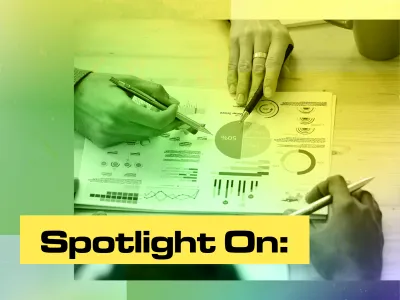
Is University The Right Choice For Me?
Include this article in your Skills Builder Journal. It could help you develop... 


So, you’ve just done your GCSEs, but what’s next? Some of you might be going on to college, some of you might be doing an apprenticeship, some of you might not have any idea what to do next. Luckily, Clare, the CEO of UCAS has got the lowdown on a bunch of different paths you could take. Here’s what she has to say…
In 1602, Shakespeare gave us the phrase “Why, then, the world’s mine oyster, Which I with sword will open”. Those of you who will have got your English GCSE results may have known that already, but the metaphor rings truest today, in 2021.
The opportunities offered by universities, colleges, and employers are so vast and so diverse that you can choose your own route to the future you aspire to. The world really is your oyster.
UCAS research shows us that the earlier students engage with careers information, guidance, and advice, the earlier they start preparing and making decisions of their own. And we’ve got plenty in our locker to inspire you.
Our website has lots of helpful advice and tips, but for many of you, you’ll already have started planning ahead, and for some careers this is really important. We know from our recently published report, ‘Where Next? What influences the choices school leavers make?’ that two in five students at uni say they would have made better choices had they had better access to higher quality information and advice. It’s important that you think carefully about your subject choices post-GCSE, as you may need to study certain subjects at level 3 to progress to particular degree subjects later on. For example, you will need sciences to progress to medicine, and maths to progress to economics courses at degree level.
Our Where Next? research shows us that some students would have made different decisions had they had better careers information, advice, and guidance. One in three told us that they received no information about apprenticeships and around a third would choose a different post-16 option now that they know what their course involves.
You might be surprised to know that more than half of 18-year-olds in the UK who continue into sixth form choose not to go onto study a full-time undergraduate degree but choose an alternative route. This might be one stage further than where you are right now, but the decisions you take over the next few weeks can widen or narrow your options further down the line.
There are a range of qualifications that provide training in a technical skill; including courses with a work placement like a National Vocational Qualification and (new from last September) T-Levels. T levels are two-year courses, developed in collaboration with employers and businesses so that the content meets the needs of industry and prepares students for work, further training or study. They are only available in England, as things stand, in a limited number of subject areas, but plans are afoot to roll these out more widely.

There are also Level 3 apprenticeships, BTEC diplomas, and Conservatoire degrees, which can enable you to enter a specific sector or industry, like the creative industries, public services or ICT.
Things really have changed over the years when it comes to ‘on the job’ training. Yes, there are skilled roles in engineering, manufacturing, and plenty of other trades that have a tradition of employing school-leavers in stable and essential jobs. But there are also many other skilled professions that perhaps are not as obvious, like plumbing or computer game software development, that you do not need a degree for.

Regardless of whether you decide uni is for you, your next steps are important. If you decide to go to uni later, either in a few years or as a mature student, you will still need certain qualifications for entry. It’s important to do this research now, to not lose out later on.
It can be a lot to take in, and everyone understands what an unprecedented situation you have all been in over the last twelve months, but it is also an exciting time, full of opportunity and potential. New journeys are often daunting, but if you are aware of the consequences of decisions when you make them, then they need not be feared and are essential to your development in your chosen field.
Shakespeare probably wasn’t referring to careers in aeronautical design, government communications or the NHS when he wrote The Merry Wives of Windsor over 400 years ago, but what you choose to do could make the world a very different place in 2421. Now, isn’t that exciting?
For more information on all of these routes, and many more are available for you, head to our Post 16 qualifications you can take page.




